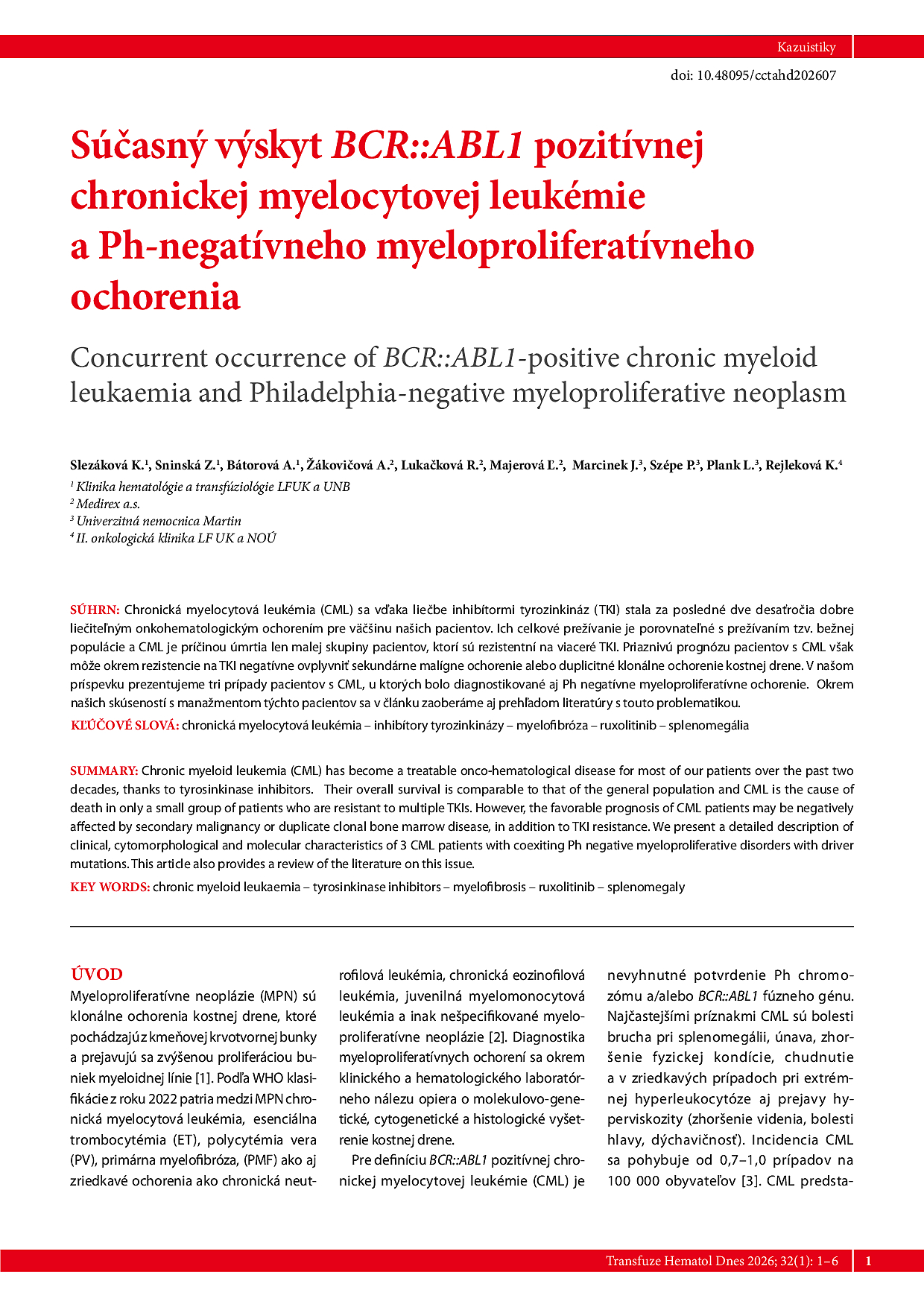-
Medical journals
- Career
News

What Is the Role of Ketamine in Psychiatry and Psychotherapy?
27. 2. 2026 Source: proLékaře.czIn psychiatry, ketamine is considered a substance with a rapid onset of antidepressant action, with administration potentially leading to clinical improvement within hours to days. In addition to its pharmacological use, ketamine-assisted psychotherapy (KAP) has developed in recent years. This approach combines the biological effects of the substance with targeted psychotherapeutic work and aims to prolong and deepen the antidepressant response.

Dual Diagnosis as the Co-Occurrence of Substance Use Disorder and Another Psychiatric Condition
The co-occurrence of substance use disorder and another psychiatric illness is one of the most common and at the same time most challenging situations in clinical practice. Despite this, patients…25. 2. 2026 Source: proLékaře.cz
Artificial Intelligence May Contribute to Earlier Detection of AMD. How Does It Work in Practice?
Artificial intelligence (AI) is finding applications in the diagnosis of various diseases, and ophthalmic conditions are no exception. In this field, AI has proven useful in retinal examinations,…13. 2. 2026 Source: proLékaře.cz
Oncology Care Coordinators Will Shorten Patients’ Journey Through the System
In regions located farther from Comprehensive Oncology Centers (COCs), access to oncology care may generally be lower. When this is combined with so-called fast-track diagnoses, where time is…9. 2. 2026 Source: proLékaře.cz
How Could the Gut Microbiota Be Linked to a Higher Risk of Abdominal Aortic Aneurysm Progression?
A cohort study conducted in Europe and the United States demonstrated an association between elevated blood levels of trimethylamine N-oxide (TMAO)—a metabolite produced in the presence of the gut…6. 2. 2026 Source: proLékaře.cz
AI Will Help Personalize the Treatment of Atrial Fibrillation
According to estimates, up to half a million people in the Czech Republic suffer from atrial fibrillation. The diagnosis is associated with an increased risk of serious complications and therefore…4. 2. 2026 Source: proLékaře.cz
Psilocybin Approved as of January 1. What Does This Mean in Practice?
As of January 1, 2026, a new legal framework has come into effect in the Czech Republic allowing the limited therapeutic use of psilocybin in patients with severe mental health conditions. This…
Czech Gastroenterology Keeps Up with the Times. For 80 Years
Czech gastroenterologists have had a professional society bringing them together for eight decades. What can be considered the greatest progress in the field in recent years, which topics were…30. 1. 2026 Source: proLékaře.cz
“Bites” from Clinical Research – 2026/4
In selecting this edition of “bites,” we explored new findings published in leading medical journals — ranging from the prevention of ventricular arrhythmias and early detection of pancreatic cancer…29. 1. 2026 Source: proLékaře.cz
Precision Psychiatry Has Its Roadmap
The Precision Psychiatry Roadmap (PPR) is designed as a dynamic process that continuously incorporates new scientific insights into the biological basis of mental disorders into current syndromes…28. 1. 2026 Source: proLékaře.cz
Vaccination Is Entering a New Era Thanks to Innovative Technologies
Efforts to protect the human body from serious diseases through vaccination date far back into history. Historical sources tell us that the first attempts at immunization already appeared in ancient…26. 1. 2026 Source: proLékaře.cz
Why Endometriosis Requires the Principles of Precision Medicine
Why do some patients with endometriosis have only small lesions yet suffer from unbearable pain, while others with extensive lesions feel almost none? An international team of scientists, in…23. 1. 2026 Source: proLékaře.cz
“Clinical Research Bites” – 2026/5
Today’s “bites” are devoted almost entirely to cardiovascular health and prevention.22. 1. 2026 Source: proLékaře.cz
How Can AI Help Psychologists Through Language Analysis?
Large language models (LLMs) have the potential to transform standardized psychological tests and assessments. Artificial intelligence algorithms are capable of analyzing natural human communication…21. 1. 2026 Source: proLékaře.cz
Seventy Years Since the First Czech Hemodialysis
It is not only the home of a legendary scientist said to have made a pact with the devil, but also the site of the Hemodialysis Center of the General University Hospital (VFN). At Prague’s Faust…19. 1. 2026 Source: proLékaře.cz
Popular this week- Dual Diagnosis as the Co-Occurrence of Substance Use Disorder and Another Psychiatric Condition
- Artificial Intelligence May Contribute to Earlier Detection of AMD. How Does It Work in Practice?
- BENIGN DERMATOSIS OF PENIS
- Psilocybin Approved as of January 1. What Does This Mean in Practice?
- Nystatin – Newly Available Drug for Extemporaneous Preparation
Login#ADS_BOTTOM_SCRIPTS#Forgotten passwordEnter the email address that you registered with. We will send you instructions on how to set a new password.
- Career















